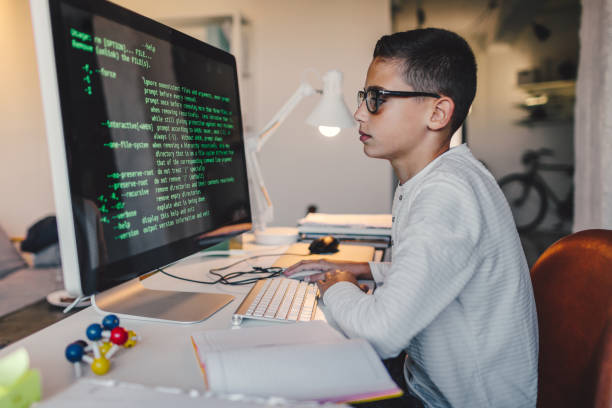5 Benefits of Kids Learning to Code has become a fundamental skill, much like reading and math. Teaching kids to code can open up a world of opportunities, providing them with valuable skills that extend beyond just computer programming. This article explores five key benefits of kids learning to code and how these advantages can shape their future.
1. Enhanced Problem-Solving Skills

Critical Thinking Development
Learning to code encourages children to think critically and approach problems methodically. When faced with a coding challenge, kids must break down complex tasks into smaller, manageable parts. This process teaches them to analyze situations and devise logical solutions, skills that are essential not only in programming but in everyday life.
Real-World Application
Coding teaches children how to approach real-world problems creatively. For instance, when kids learn to design a game or an app, they often encounter various obstacles that require innovative solutions. This hands-on experience fosters a mindset of perseverance and resourcefulness, encouraging them to tackle challenges with confidence.
2. Fostering Creativity and Expression
Building Interactive Projects
Coding is not just about numbers and algorithms; it’s also a powerful medium for self-expression. Kids can create games, animations, and websites that reflect their interests and ideas. This freedom to build something from scratch allows them to explore their creativity in a structured way.
Combining Art and Technology
With coding, children can combine artistic skills with technology. They can design visually appealing graphics for their projects, create unique characters for games, or develop interactive stories. This blend of creativity and coding opens new avenues for kids to express themselves and innovate.
3. Career Opportunities and Future Readiness
Growing Demand for Tech Skills
As technology continues to advance, the demand for skilled programmers is increasing. According to various reports, many jobs in the future will require some level of coding knowledge. By learning to code early, kids position themselves favorably for future career opportunities in a wide range of fields, from computer science to engineering and beyond.
Encouraging STEM Interests
Coding can serve as a gateway to broader STEM (Science, Technology, Engineering, and Mathematics) interests. By introducing kids to coding, parents and educators can inspire them to explore other STEM fields, encouraging curiosity and innovation. This foundational knowledge can lead to more advanced studies and careers in technology-related sectors.
4. Improved Academic Performance
Strengthening Math Skills
Learning to code is closely linked to mathematical concepts. Through coding, children practice logic, patterns, and algorithms, which reinforces their math skills. As they engage with coding projects, they often find themselves applying mathematical principles, leading to better understanding and performance in school.
Cross-Disciplinary Learning
Coding is a versatile skill that enhances learning across various subjects. For instance, creating a program can involve elements of history (researching a historical event), language arts (writing dialogue for a game), and even geography (mapping a game environment). This interdisciplinary approach helps children see the connections between subjects, fostering a more holistic learning experience.
5. Building Resilience and Confidence

Overcoming Challenges
Coding involves trial and error, and kids will inevitably face bugs and errors in their code. Learning how to debug and troubleshoot encourages resilience, teaching them not to give up when they encounter obstacles. This resilience translates to other areas of their lives, helping them face challenges with a positive attitude.
Boosting Self-Esteem
Completing a coding project can be a huge confidence booster for kids. When they see their code come to life—whether it’s a game, an app, or an animation—they gain a sense of accomplishment. This feeling of achievement fosters self-esteem and encourages them to take on new challenges in the future.
Conclusion
The benefits of kids learning to code extend far beyond the realm of technology. From enhancing problem-solving and creativity to preparing them for future careers and improving academic performance, coding is a valuable skill that can shape their personal and professional lives. As parents and educators, encouraging children to engage with coding can empower them to navigate the complexities of the modern world with confidence and creativity. By investing in their coding education today, we are equipping them with the tools they need to succeed in the future.
